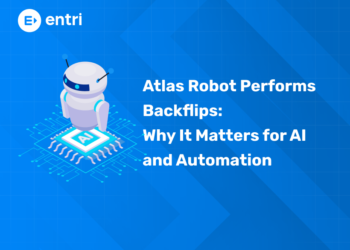Table of Contents
Java Developers are in high demand these days, and if you’re an aspiring Java Developer or a recent graduate from a Java programming boot camp, it’s helpful to know what questions your potential employer will likely ask you during your interview. Questions relating to object-oriented design, the Java Virtual Machine (JVM), concurrency, unit testing, and other hot topics make up this list of the 20 most important interview questions for Java developers. We also include sample answers that can help you prepare for your next Java job interview!
Top Interview Questions For Java Developer
Q 1) What is a process?
A process is a series of actions that a computer goes through to accomplish a goal. From booting up your computer to running an application, your computer can be said to be going through multiple processes simultaneously.
Q 2) What are the different states of a process?
All processes have to be in one of four states at any given time: sleeping, running, blocked, or terminated. Knowing these states will help you differentiate between a process that’s stalled and one that has crashed.
Q 3) What does it mean if a process is alive?
A process is alive if it has either a current thread running in it or if its parent process is alive. A good rule of thumb to remember when dealing with processes is, if you don’t know whether a process is alive or not, assume that it’s not. Otherwise, you could make unintended changes to your system.
Learn to code from industry experts! Enroll here!
Q 4) Describe System V IPC.
System V IPC is a form of inter-process communication (IPC) for use between processes running on Unix and Unix-like operating systems. It was introduced in AT&T System V Release 3 (SVR3). It is distinct from SysV’s shared memory.
Q 5) How can we debug a multi-threaded program in Eclipse?
The Eclipse IDE has some really great tools for debugging multi-threaded programs. Many of these tools rely on breakpoints, which halt execution and allow you to peek at variables in your running program. In order to debug a multi-threaded program, you’ll need to have basic knowledge of threads.
Q 6) Can you explain Garbage Collection in JVM?
Garbage collection is a memory management technique used in most programming languages including C++, C#, Python, and others. In garbage collection-based programming languages, a Garbage collector is a software component that has an overview of allocated objects and reclaims unused memory from them. The design and implementation of garbage collectors vary widely; some are explicitly designed to be hardware-accelerated where possible. Others rely on software alone, implementing them as libraries that are linked with applications when they start up or run out of memory.
Learn Coding in your Language! Enroll Here!
Q 7) What are different Modifiers in Java and their meaning?
Modifiers are keywords in Java language, through which we can define some additional information about variables, methods, classes, and interfaces. They give more meaning to them. Here is a list of modifiers that you should remember in Java
Q 8) Explain about volatile modifier in Java.
Variables defined as volatile are synchronized across threads. If two threads access a volatile variable without synchronization, unexpected results can occur. The changes made by one thread can be overwritten by another thread without any warning. This can lead to data corruption and should be avoided at all costs. Synchronizing objects that are referenced by a volatile object is a good practice when working with variables declared as volatile in java.
Q 9) What happens if we have an infinite loop?
While code within a loop is guaranteed to execute at least once, there are situations where it may run for an extended period of time (like when a user continuously hits reload on a web page). In these cases, you need to ensure that your code isn’t hanging indefinitely and doesn’t create infinite loops.
Q 10) Why Exception handling mechanism added to the java language?
Exception handling mechanism added to java language to handle runtime problems. Before the addition of the exception handling mechanism programmer used to give multiple return statements in a program. Which was not a good practice.
Q 11) Why do we need assertions? Give few examples
We use assertions to ensure that we don’t introduce any bugs during development and to make sure that we catch them as early as possible. This allows us to spend more time writing new code and less time debugging existing code.
Learn to code from industry experts! Enroll here!
Q 12) When was the last time you wrote code?
Code is king, and that’s never been more true than in today’s technology-driven world. A great developer has a natural curiosity about new languages and tools—and if you can’t demonstrate yours on your resume, during an interview is a great time to show off your chops. Nothing makes a developer want to run away screaming as quickly as looking at résumés full of acronyms and buzzwords without any technical substance.
Q 13) What interests you about this position?
When you are interviewing a candidate, it is important to start off with an open-ended question. This will give them a chance to really tell you what they know about your company, as well as what they know about their career path. If they seem to be avoiding your question or are not answering them directly, then it is likely that they are not very interested in your position and/or company.
Q 14) Tell me about your project/application in the specified domain.
Understanding how your previous experience is relevant to your new job will help you answer questions about projects. You can do that in two ways: Discuss a recent project from your portfolio and describe how it translates to what you’re applying for now, or discuss a project that was related to what you’re applying for but from several years ago. If you were able to finish it successfully and meet some goals along the way, even better.
Q 15) What do you know about our company?
This question is a favorite question for most interviewers. If someone has, it shows that they’re very serious about working with us and we’re not just interested in getting an interview but rather, wanted to make sure we were a good fit before committing themselves to an interview slot with us.
Learn to code from industry experts! Enroll here!
Q 16) Have you worked with this technology before (Java)?
If you’re interviewing for a job in IT, it is common to be asked about your familiarity with specific software and technologies. If you haven’t yet used a particular technology, don’t panic—but do read up on it as soon as possible so that you can demonstrate that you know what makes up a particular technology, how it works, and what its purpose is. Look into job boards and other resources before your interview.
Q 17) How would you describe what we do here?
The first interview question can also be your opportunity to give a concise description of what you do. If you’re interviewing at Google, describe what they do in a way that makes it clear why you’d want to work there. The same goes if you’re talking to someone who works at a small design firm or bakery or hardware store. Don’t make your interviewer guess—give them something concrete with which to work.
Q 18) Why are you interested in working here?
Be honest. Be enthusiastic. Be prepared to tell them how your experience and qualifications will benefit their organization—and what you hope to get out of working there. The more you make it about them, rather than yourself, the more they’ll be interested in you. In a nutshell: sell yourself! But don’t say anything that isn’t true; companies have become pretty good at checking references these days and lying during an interview can be a deal-breaker.
Q 19) Have you written tests for your code before?
Test-driven development is a popular way to write code because it helps you identify and prevent problems. A good developer should be able to write tests that show how new code functions before they even start writing it. This means they’ll need to know how to use unit testing frameworks or build their own framework using mock objects. Asking a candidate whether or not they’ve written unit tests, and if so, how, is a great way to gauge their competency level on an entry-level position.
Q 20) Do you have any questions for us?
As a candidate, asking thoughtful questions is a great way to show an interviewer that you’re interested in more than just getting hired—you’re excited about contributing. But as an interviewer, using questions to guide your candidates and learn more about their skills is essential. Read on for some of our favorite interview questions for Java developers and our advice on how to handle them.
Learn to code from industry experts! Enroll here!
Conclusion
1: What is the default value of a boolean in Java?
Here we discussed the top interview questions for a Java developer. Java is one of the most popular programming languages out there, with millions of people using it every day to make their jobs easier. In an industry that’s as competitive as programming, you need all the skills you can get to make sure your resume sticks out and that you’re getting interviews. If you are interested to learn new coding skills, the Entri app will help you to acquire them very easily.











